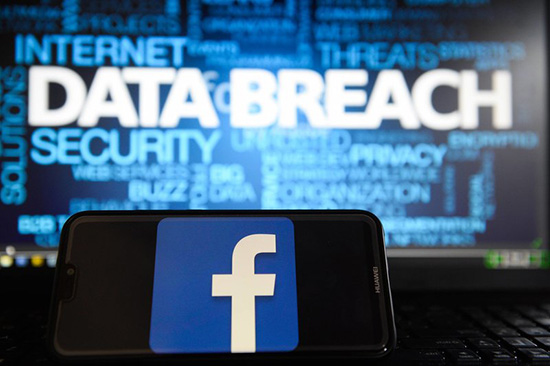Facebook开始收费了,这可能是件好事

|
在线广告是当今数字经济的血液,它为依赖广告的公司创造了数以百亿计的收入——仅2017年就达到880亿美元,原因是企业争相吸引乃至独占消费者的注意力。由于这个领域的货币是人们的关注和数据,而非美元和美分,这样的监控资本主义给个人带来了巨大成本。 今年的数据丑闻层出不穷,令消费者对企业收集并存储其个人数据的方式感到担心。他们不光希望能够信任与之分享个人数据的公司,还想自信地确认这些公司不会把他们的信息卖给未曾谋面的第三方。因此,对隐私友好型业务模式的需求越来越大,这种模式的交易简单明了,成本清晰可控。 与隐私需求上升并行的另一种市场趋势是订阅的崛起。过去五年中,订阅市场有了长足发展,仅电子商务订阅收入就从2011年的5700万美元增至2016年的26亿美元。所谓FANG概念股之一的Netflix证明,订阅业务能带来高额收入。 考虑到消费者在隐私和订阅服务两方面的需求,世界上的顶尖科技公司是时候该提供相关业务了。 隐私在行动 为了探究基于消费者隐私原则的订阅有多大潜力,我们假设在另一个平行世界中的Facebook提供了一种付费产品。 要利用这个关口,Facebook可以推出一个完全没有广告和追踪程序的付费版本,并将其作为世界上第一款应用广泛的隐私友好型社交网络进行推广。如果每月收取8-10美元订阅费,“收费版Facebook”就有可能帮助该公司吸引具有隐私意识而且正在逐步退出这个平台的受众,甚至有可能带来和美国、加拿大广告业务相当的收入。 作为没有广告的付费产品,收费版Facebook不再需要垄断用户的注意力以尽可能地提升广告效果,也不再需要收集数据来尽量提高转化率。相反,它可以为用户带来实用性和价值,以此证明他们的订阅费没有白花。为促使用户订阅,它可以为其短信app添加其他功能,提供优质视频内容,并让用户体会到自主(而有限)的社交体验,而不是它没完没了的新闻推送。另外还有其他以实用性和个性化功能为主的产品创新,而不是与用户互动。 隐私友好型订阅服务有可能给Facebook带来新的市场机会,但Facebook并非这种新模式的唯一潜在受益者。几家科技巨头都有可能从中受益。 举例来说,谷歌和亚马逊已经推出了付费订阅业务。我们的研究人员开展的一项研究显示,作为在网络上拥有最多追踪程序的公司,谷歌已经在收取用户的Google One增容费。谷歌可以基于这种订阅模式推出私人版Gmail、谷歌地图等服务,并收取很少的费用。 与之类似,亚马逊已经有了Prime业务,这项订阅服务异常成功,2018年全球用户数量超过1亿人。虽然亚马逊看到了数字广告出色的增长——去年实现收入40亿美元,但和其他广告巨头相比仍是小巫见大巫——谷歌的广告收入达到令人咂舌的950亿美元,Facebook也获得了几乎400亿美元广告收入。不过,亚马逊不必和它们苦战,它可以让自己的Prime会员服务更进一步,为用户的网上购物提供前所未有的隐私保护。 这样,两家公司都有可能从本质上为隐私定价,并让用户选择是用金钱还是数据来换取它们的技术。 全局考虑:数据所有权 隐私友好型订阅服务的关键基础是数据中心,用户在此可以看到并主动选择这些公司可以拥有哪些和他们相关的数据。更重要的是,如果愿意,用户可以彻底删除、编辑或出口其数据。这样,用户的隐私及其对社交和数字足迹的把控就有可能变成一种打包产品,作为付费用户体验出售。这种方法不光能带来巨大的消费者价值,还可以就欧盟的《通用数据保护条例》(General Data Protection Regulation)等强势隐私法规给这些公司打个预防针。 在大型科技公司受到严厉批评的环境下,这种把隐私作为付费服务的业务模式将为用户和企业之间形成互惠关系铺平道路。Netflix等订阅公司已经为基于订阅的未来奠定了基础,现在则轮到全球科技龙头企业把隐私放在其业务的最前沿了。(财富中文网) 本文作者杰里米·蒂尔曼是隐私保护插件开发商Ghostery的产品主管。 译者:Charlie 审校:夏林 |
Online advertising is the lifeblood of today’s digital economy, generating billions of dollars of revenue for ad-supported businesses—$88 billion in 2017 alone—as companies try to capture and monopolize consumer attention. With the currency being attention and data rather than dollars and cents, this surveillance capitalism extracts a huge cost on individuals. This year has been riddled with a slew of data scandals that have consumers worried about the ways in which companies collect and store their personal data. Not only do consumers want to trust the companies they share personal data with, but they also want to feel confident that the company won’t go selling their information to unknown third-parties. As a result, there is an increasing demand for privacy-friendly business models where transactions are straightforward, with the costs clearly communicated. This increased demand for privacy parallels another market trend: the rise of subscriptions. In the past five years, the subscription market has grown massively, exploding from $57 million in revenue in 2011 to $2.6 billion in 2016 in e-commerce alone. Netflix, one of the so-called FANG stocks, is Exhibit A that subscription businesses can earn massive revenue. Considering consumer demand for both privacy and subscription services, it’s time for the top tech companies of the world to deliver on it. Privacy in action To explore the potential of subscriptions built on the principle of consumer privacy, let’s consider an alternate universe where Facebook offered a paid product. To capitalize on this moment, Facebook could offer a premium version of its platform that is completely ad- and tracker-free and market it as the world’s first widely used, privacy-friendly social network. With an $8 to $10 monthly subscription, “Facebook Premium” could help the company attract a privacy-conscious audience that is increasingly less engaged with its platform, and potentially generate the same amount of revenue as it does from advertising in the U.S. and Canada. As a paid product with no ads, Facebook Premium would no longer have the impetus to monopolize user attention to maximize ad impressions, nor would it need to harvest data to maximize conversion rates. Instead, it could deliver utility and value to its users as justification for the subscription cost. To entice users to subscribe, it could offer additional features for its messaging app, premium content for video, a curated (and finite) social experience that replaces its bottomless newsfeed, and other product innovations that focus on useful and personalized features rather than user engagement. While privacy-friendly subscription services could open new market opportunities for Facebook, it isn’t the only company that could benefit from this new model. There are several tech giants that could benefit in similar ways. For example, Google and Amazon already offer paid subscriptions. Google, which has more trackers across the web than any other company, according to a study done by our researchers, already charges users for increased storage on Google One. Google could build on this subscription structure to offer private versions of Gmail, Google Maps, and other services for a nominal fee. Similarly, Amazon already offers Prime, its wildly successful subscription service with over 100 million members worldwide in 2018. Though Amazon is seeing impressive growth in digital advertising, pulling in $4 billion in revenue last year, it’s still dwarfed by the other ad giants—Google raked in a whopping $95 billion, and Facebook generated almost $40 billion. Rather than fight that uphill battle, Amazon could enhance its Prime membership with a new tier that grants users unprecedented privacy in e-commerce shopping. In this way, both companies could essentially put a price on privacy, and let its users choose whether they want to pay for their technologies with money—or with data. The bigger picture: data ownership A critical foundation of privacy-friendly subscription services would be a data hub where users can see—and have an active role in choosing—what data these companies have related to them. More importantly, if and when a user wants to, they could completely delete, edit, or export their data. In this way, users’ privacy and control over their social and digital footprint could be turned into a product that is packaged and sold as a paid user experience. Not only would this approach offer tremendous consumer value, but it would also inoculate these businesses against aggressive privacy regulation like the General Data Protection Regulation (GDPR). In a world where big tech is facing harsh criticism, this privacy as a paid service business model would pave the way for a mutually beneficial relationship between users and businesses. Netflix and other subscription companies have already created the basis for a subscription-based future, and now it’s up to the leading tech organizations of the world to put privacy at the forefront of their business. Jeremy Tillman is the director of product at Ghostery. |













